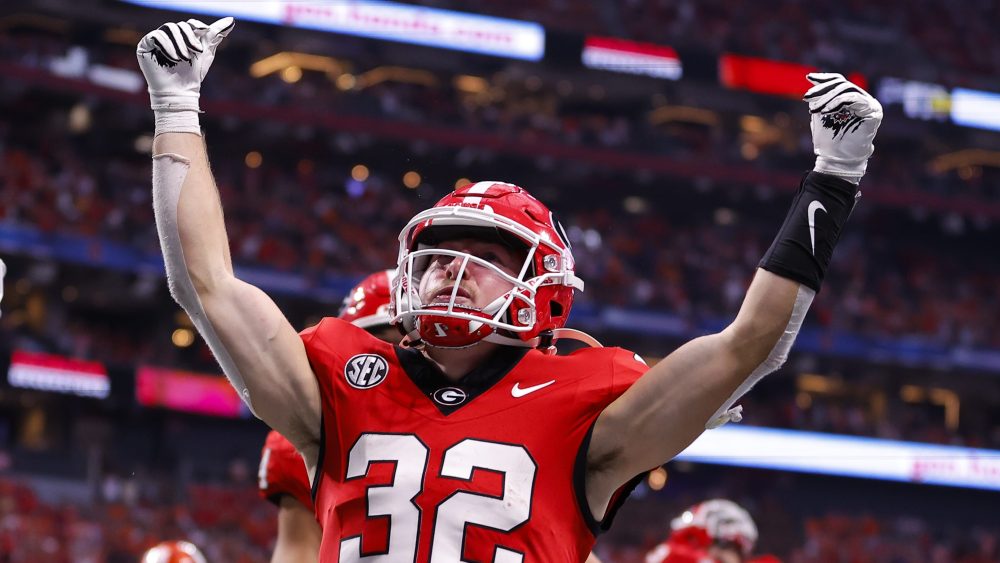ESPN, ABC, Disney Channel Go Dark on DirecTV Amid Contract Fight
ESPN and other Disney-owned channels have gone dark on DirecTV after the sides failed to come to terms on a new carriage agreement, a business impasse that reflects the broader economic pain spreading throughout the pay TV sector.
The blackout, coming on a big weekend for college football and during ESPN’s coverage of the U.S. Open tennis tournament, affects most of DirecTV’s 11 million-plus subscribers in the U.S. DirecTV stated that Disney made the decision to pull the plug as negotiations were under way. Disney leaders argued they had no choice as DirecTV has balked paying what it described as market rates for its channels.
“While we’re open to offering DirecTV flexibility and terms which we’ve extended to other distributors, we will not enter into an agreement that undervalues our portfolio of television channels and programs. We invest significantly to deliver the No. 1 brands in entertainment, news and sports because that’s what our viewers expect and deserve. We urge DirecTV to do what’s in the best interest of their customers and finalize a deal that would immediately restore our programming,” Disney said in a statement attributed to Disney Entertainment co-chairs Dana Walden and Alan Bergman and ESPN chairman Jimmy Pitaro.
DirecTV put the onus on Disney for demanding higher prices that the satellite TV provider will have to pass down to consumers.
“The Walt Disney Co. is once again refusing any accountability to consumers, distribution partners, and now the American judicial system,” said Rob Thun, chief content officer at DirecTV. “Disney is in the business of creating alternate realities, but this is the real world where we believe you earn your way and must answer for your own actions. They want to continue to chase maximum profits and dominant control at the expense of consumers – making it harder for them to select the shows and sports they want at a reasonable price.”
Disney and DirecTV have been in tense carriage renewal negotiations for months. Disney had hoped to implement a sales agreement with DirecTV to support the Disney+ and Hulu streaming bundle that is the biggest corporate priority at present for the Mouse House. Disney worked in such terms into its hard-fought pact that came together this time last year with Charter Communications after a 12-day blackout.
DirecTV, like other MVPDs, is facing slowing demand for video services as viewers shift to pure-play streaming and ad-supported free options for content that have proliferated in recent years. As such, DirecTV is taking a hard line on fee increases for channels that are seeing declining linear viewership. Disney’s focus on launching a stand-alone streaming option for ESPN — one of the longtime pillars of the cable TV bundle — next year gives DirecTV little incentive to pay more for the service.
Unlike traditional cable operators, the satellite-delivered DirecTV is not optimal for also providing subscribers with high-speed broadband service. With the Charter deal, Disney pays the cable giant a fee of some kind every time a subscriber signs up through the Charter Spectrum platform, where Disney+ and Hulu are featured as add-on options. DirecTV has far less incentive to help Disney pitch its streaming bundle to subscribers.
DirecTV’s Thun directly cited Disney’s strategic shift to direct-to-consumer platforms as a factor in the negotiations. “Consumer frustration is at an all-time high as Disney shifts its best producers, most innovative shows, top teams, conferences, and entire leagues to their direct-to-consumer services while making customers pay more than once for the same programming on multiple Disney platforms,” Thun asserted in a statement.
The blackout came around 4 p.m. PT Sunday, just as ESPN was about to air a highly anticipated 2024 season kickoff college football game between the USC Trojans and Louisiana State University Tigers.
DirecTV has pushed its programming partners for greater flexibility in creating smaller, lower-cost channel bundles. ESPN and other sports channels are among the biggest drivers of annual programming cost increases for MVPDs such as DirecTV. Disney counters that the cost of sports rights are going up, not down (see: last month’s 11-year, $76 billion NBA TV rights deal) and that it has been open to new options, apropos of the deal that ended the Charter Communications standoff.


